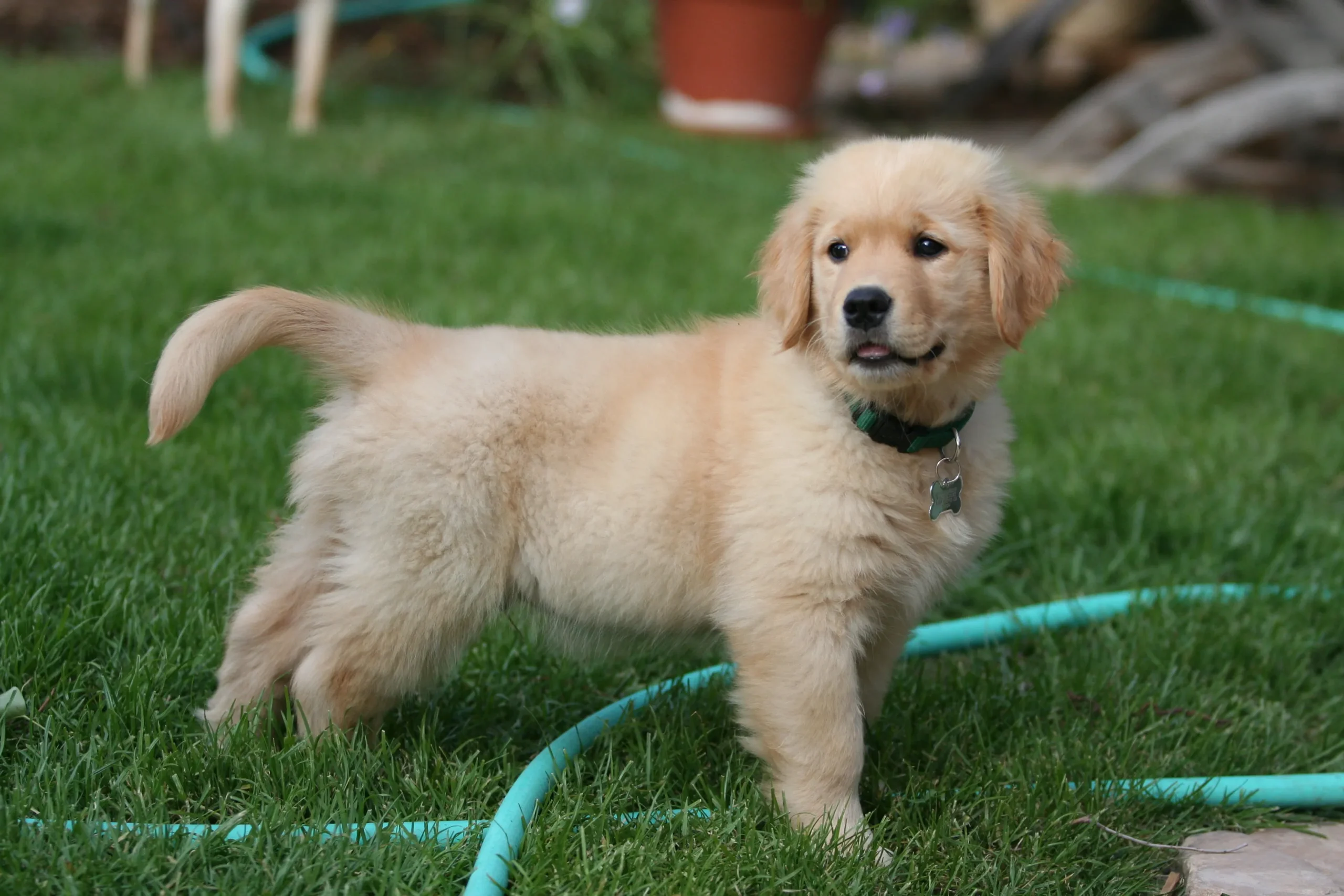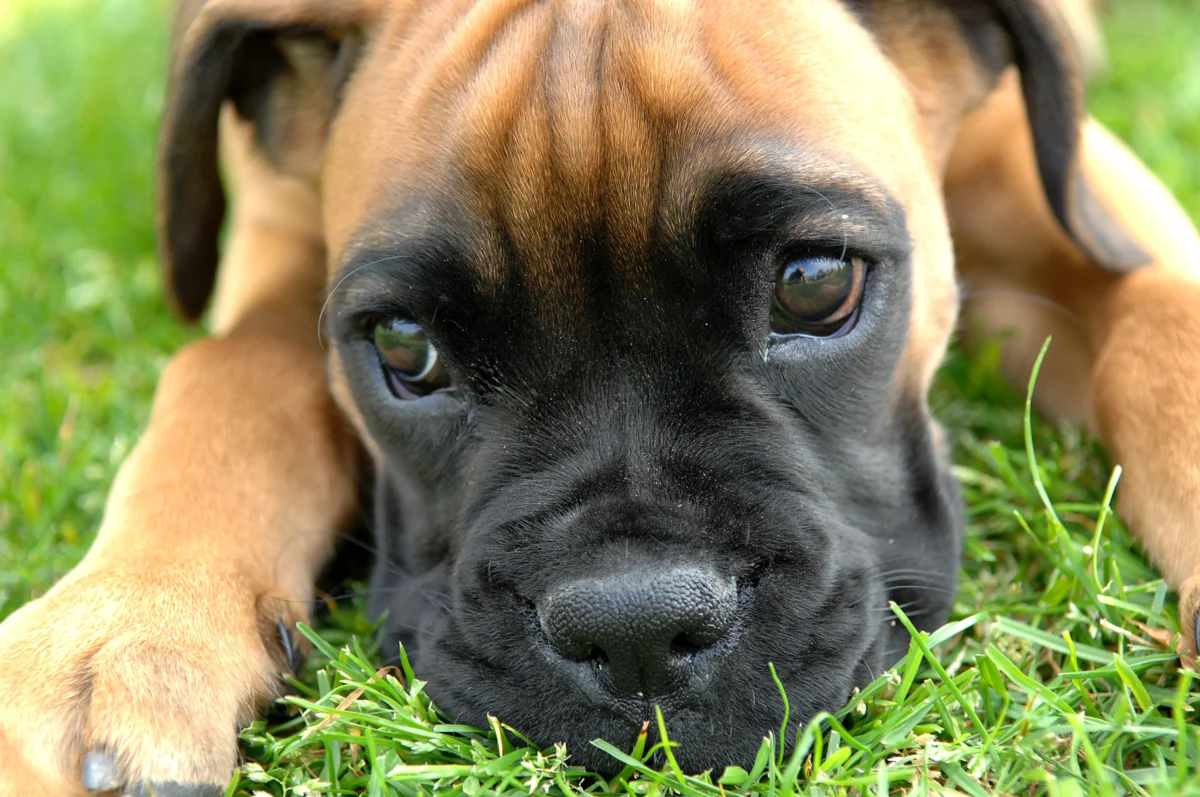Are you a proud new owner of a golden retriever puppy? Congratulations! As you embark on this exciting journey of pet parenthood, one of the most important decisions you’ll make is choosing the right food for your furry friend. In this article, we’ll explore the topic of the best golden retriever puppy food and provide you with valuable insights to help you make an informed choice. From nutritional requirements to ingredient considerations, we’ve got you covered!
Feeding your golden retriever puppy a balanced and nutritious diet is crucial for their overall health and wellbeing. But with so many options available in the market, it can be overwhelming to determine which food is the best fit for your four-legged companion. That’s why we’re here to help! In this article, we’ll break down the key factors to consider when selecting the optimal golden retriever puppy food. From protein content to grain-free options, we’ll guide you through the decision-making process, ensuring your pup gets the best start in life.
Understanding the Nutritional Needs of Golden Retriever Puppies
As a dog lover and owner of a golden retriever and a Goldendoodle, I understand the importance of providing the right nutrition for your furry companions. Having worked at animal shelters and veterinary offices, I’ve learned a lot about the nutritional needs of different breeds, including golden retriever puppies. Let’s delve into some key considerations when it comes to feeding your adorable golden retriever puppy.
1. Balanced Diet: Golden retriever puppies require a balanced diet that provides all the essential nutrients they need for growth and development. Look for puppy food specifically formulated for large breeds, as this will ensure the right balance of proteins, fats, carbohydrates, vitamins, and minerals. These nutrients are crucial for bone and muscle development, as well as promoting a healthy immune system.
2. Protein Power: Protein is a critical component of your golden retriever puppy’s diet as it supports muscle growth and overall health. Look for high-quality protein sources like chicken, beef, or fish listed as the main ingredients on the food label. Aim for at least 25% protein content in the food you choose.
3. DHA for Brain Development: DHA (docosahexaenoic acid) is an omega-3 fatty acid that plays a vital role in brain and eye development. Look for puppy foods that contain DHA, often derived from fish oil. This nutrient is especially crucial during the early months of your golden retriever puppy’s life.
4. Watch for Allergens: Golden retrievers are prone to allergies, so it’s important to be mindful of potential allergens in their food. Common allergens for dogs include grains (such as wheat, corn, and soy), artificial preservatives, and food dyes. Opt for grain-free puppy food or those with limited ingredient lists if your puppy shows signs of food allergies.
5. Controlled Growth: Golden retrievers are medium to large-sized dogs, and rapid growth can put strain on their joints. Look for puppy food formulated for large breeds that promote controlled growth. These types of food will help prevent developmental issues such as hip dysplasia later in life.
Remember, each golden retriever puppy is unique, and their nutritional needs may vary. It’s always a good idea to consult with your veterinarian to ensure you’re providing the best food for your furry friend. With the right diet and care, you’ll be setting your golden retriever puppy up
Factors to Consider When Choosing the Best Food for Golden Retriever Puppies
As a dog lover and owner of both a golden retriever and a Goldendoodle, I understand the importance of providing the best nutrition for your furry family members. When it comes to choosing the right food for your golden retriever puppy, there are a few key factors to consider:
Nutritional Requirements:
Golden retriever puppies have specific nutritional needs to support their growth and development. Look for a puppy food that is specifically formulated for large breeds. These foods are typically balanced to provide the right amount of protein, fat, carbohydrates, vitamins, and minerals for your puppy’s growth and energy levels.
Quality Protein Sources:
Protein plays a vital role in your golden retriever puppy’s development and overall health. Look for a puppy food that lists high-quality protein sources, such as chicken, beef, or fish, as the first ingredients. Avoid foods that contain meat by-products or fillers, as these may not provide the necessary nutrients your puppy needs.
DHA for Brain Development:
Docosahexaenoic acid (DHA) is an omega-3 fatty acid that supports brain development and cognitive function in puppies. Look for a puppy food that contains DHA, as it can help your golden retriever puppy develop into a smart and trainable companion.
Allergen Avoidance:
Golden retrievers, like many other breeds, can be prone to allergies and sensitivities. If you notice any signs of food allergies, such as itching, digestive issues, or ear infections, consider switching to a limited ingredient diet or a food formulated for dogs with allergies. Consult with your veterinarian to determine the best course of action.

Controlled Growth:
« Shocking Truth Revealed: The Astonishing Reason Why Golden Retrievers Are No Longer Living as Long
Discover the Secret to Golden Retrievers’ Gorgeous Coats! You Won’t Believe What Type of Hair They Have »
Golden retriever puppies grow rapidly, and it’s important to ensure that their growth is controlled to avoid skeletal and joint problems later in life. Look for a puppy food that is formulated to promote controlled growth and avoid excessive calorie intake. This can help maintain a healthy weight and reduce the risk of orthopedic issues.
Popular Brands of Golden Retriever Puppy Food
When it comes to choosing the best food for your golden retriever puppy, there are a variety of brands available on the market. Here are a few popular options that you can consider for your furry friend:
- Royal Canin Golden Retriever Breed Health Nutrition Puppy Dry Dog Food: This brand offers specialized puppy food that is tailor-made for golden retrievers. It includes key nutrients like EPA, DHA, and antioxidants that support healthy skin, coat, and joint development. The kibble shape and texture are designed to encourage your puppy to chew thoroughly, aiding in digestion.
- Hill’s Science Diet Large Breed Dry Dog Food: This brand is known for its high-quality ingredients and commitment to scientific research. The large breed formula provides a balanced mix of nutrients, including glucosamine and chondroitin for joint health. It also contains a blend of vitamins, minerals, and antioxidants to support your puppy’s overall development.
- Blue Buffalo Wilderness High Protein Dry Puppy Food: If you’re looking for a grain-free option, this brand is a great choice. It contains real chicken as the first ingredient and is packed with protein to support your puppy’s muscle development. It also includes DHA and ARA for brain and eye health.
- Wellness Complete Health Natural Dry Puppy Food: This brand focuses on using natural ingredients and avoids artificial additives. The puppy formula includes deboned chicken, fruits, vegetables, and grains to provide a balanced diet. It also contains DHA for brain and eye development.
Remember, every puppy is unique, and what works best for one may not work for another. It’s important to consider your puppy’s specific needs and consult with your veterinarian before making a decision. They can provide you with personalized recommendations based on factors such as your puppy’s age, weight, and any specific health concerns.
In addition to considering the brand, don’t forget about the importance of gradual transition when switching to a new food. This can help prevent any digestive upset or food allergies. Start by mixing a small amount of the new food with your puppy’s current food, gradually increasing the amount over a week or two.
Feeding Guidelines for Golden Retriever Puppies
As a dog lover and owner of both a golden retriever and a Goldendoodle, I understand the importance of giving your furry friend the best food possible. Feeding your golden retriever puppy the right way is crucial for their growth and overall health. Here are some feeding guidelines to ensure your puppy gets the nutrition they need:
1. Consult with Your Veterinarian
Before you start selecting a specific brand of food, it’s always a good idea to consult with your veterinarian. They know your puppy’s unique needs and can recommend the best nutrition plan for them. Your vet can guide you on portion sizes, feeding frequency, and any specific dietary requirements your puppy may have.
2. Choose High-Quality Puppy Food
When it comes to golden retriever puppies, it’s essential to choose a high-quality puppy food that meets their nutritional needs. Look for a food that is specifically formulated for large-breed puppies or golden retrievers. These foods are designed to support their rapid growth and development.
3. Opt for Quality Protein Sources

Protein is an essential component of your puppy’s diet as it supports muscle growth and development. Look for puppy foods that contain high-quality protein sources such as chicken, turkey, or salmon. Avoid foods that list meat by-products or fillers as the main protein source.
4. Consider DHA for Brain Development
DHA (docosahexaenoic acid) is an omega-3 fatty acid that plays a crucial role in brain development. Look for puppy foods that are fortified with DHA to support your golden retriever’s cognitive development.
5. Avoid Common Allergens
Golden retrievers can be prone to food allergies and sensitivities. Avoid common allergens such as soy, wheat, and corn in your puppy’s food. Instead, opt for formulas that use alternative grains like rice or quinoa.

6. Monitor Growth and Adjust Portions
Golden retrievers are known for their enthusiastic appetites, but it’s important not to overfeed them. Monitor your puppy’s growth and adjust their portion sizes accordingly to maintain a healthy weight. If you notice excessive weight gain or loss, consult your veterinarian for guidance.
Remember, every puppy is unique, and their nutritional needs may differ. Be sure to monitor your golden retriever puppy’s weight, energy levels, and overall health to determine if any adjustments are needed. By following these feeding guidelines and consulting with
Homemade vs. Commercial Puppy Food: Pros and Cons
As a dedicated dog lover with experience in animal shelters and veterinary offices, you understand the importance of providing the best nutrition for your golden retriever puppy or Goldendoodle. When it comes to choosing their food, you’re faced with the decision of homemade or commercial puppy food. Let’s explore the pros and cons of both options to help you make an informed choice.
Homemade Puppy Food:
Pros:

- Control over ingredients: Making your own dog food allows you to have full control over what goes into your puppy’s diet. You can select high-quality ingredients, avoiding artificial additives or fillers.
- Tailoring to specific needs: If your puppy has specific dietary requirements or allergies, homemade food gives you the flexibility to tailor their meals accordingly.
- Freshness and variety: Preparing homemade meals for your puppy allows you to offer them a variety of fresh and nutritious ingredients, ensuring they receive a well-rounded diet.
Cons:
- Time-consuming: Preparing homemade food is a time-consuming process, requiring careful planning, cooking, and portioning.
- Nutritional balance: Creating a nutritionally balanced diet for your puppy can be challenging, as it requires an understanding of their specific nutritional needs and the right ratio of proteins, carbohydrates, and fats.
- Risk of nutrient deficiencies: Without expert guidance, homemade diets may lack essential nutrients, leading to potential deficiencies if not properly balanced.
Commercial Puppy Food:
Pros:
- Convenience: Commercial puppy food offers convenience, as it is readily available in pet stores and online. It requires minimal preparation and meets the nutritional needs of your growing puppy.
- Formulated for specific stages: Puppy food is specifically formulated to meet the nutritional requirements of growing puppies, ensuring they receive the right balance of nutrients for their development.
- Quality control: Reputable commercial pet food brands adhere to strict quality control standards, ensuring that their products undergo rigorous testing and meet specific nutritional guidelines.
Cons:
- Lack of transparency: Some commercial puppy foods may contain low-quality ingredients, fillers, or artificial additives. It’s essential to research and select reputable brands that prioritize high-quality ingredients.
- Less variety: Commercial puppy foods may not offer the same level of variety and freshness as homemade meals since they are mass-produced and shelf-stable.
- Cost: Premium commercial puppy foods can be expensive, especially when compared to the cost of
Signs of a Healthy Diet for Golden Retriever Puppies
When it comes to your furry friend, you want to provide them with the best nutrition possible. A healthy diet is essential for the growth and development of golden retriever puppies. So, how can you tell if your golden retriever puppy is getting the right nutrients? Here are some signs to look out for:
1. Shiny Coat: A glossy and lustrous coat is a good indicator of a healthy diet. Look for a coat that is soft, thick, and free from dryness or flakiness. This is a result of a well-balanced diet that includes essential fatty acids like omega-3 and omega-6.

2. Bright Eyes: Healthy eyes are bright and clear, without any redness or discharge. A proper diet that includes antioxidants like vitamins A, C, and E helps maintain good eye health.
3. Energy Levels: A well-nourished golden retriever puppy should have plenty of energy. They should be enthusiastic, playful, and alert. If your puppy seems lethargic or lacks enthusiasm, it could be a sign of an inadequate diet.
4. Healthy Weight: Maintaining a healthy weight is crucial for golden retriever puppies. You should be able to feel their ribs without excess fat covering them, but they shouldn’t be overly bony. Consult with your veterinarian to ensure you are feeding the right amount and adjusting portions as needed.
5. Firm Stool: Your puppy’s stool is a good indicator of their digestive health. It should be well-formed, not too hard or too soft. This signifies that their gastrointestinal tract is functioning properly and they are digesting their food well.
Remember, each puppy is unique, and their nutrient requirements may vary. It’s always a good idea to consult with your veterinarian, as they can provide personalized guidance based on your golden retriever puppy’s specific needs. And don’t forget about the importance of providing plenty of fresh water throughout the day.

By keeping an eye out for these signs, you can ensure that your golden retriever puppy is on the path to a healthy and happy life. A nutritious diet will lay the foundation for their overall well-being and set them up for a wagging tail and a lifetime of endless love and companionship.
Tips for Feeding Golden Retriever Puppies
Feeding your golden retriever puppy the right food is essential for their overall health and development. As a dog lover who has owned both a golden retriever and a Goldendoodle, and with my experience working at animal shelters and veterinary offices, I understand the importance of providing your puppy with the best nutrition. Here are some tips to help you with feeding your golden retriever puppy:
1. Consult with a Veterinarian: It’s always a good idea to consult with a veterinarian to get personalized guidance on your puppy’s specific nutritional needs. They can recommend the best puppy food and advise you on portion sizes, feeding schedules, and any specific dietary requirements.
2. Choose High-Quality Puppy Food: Look for puppy food that is specifically formulated for golden retrievers or large breed puppies. These formulas are designed to support their growth and development. Opt for brands that use high-quality ingredients without any artificial additives or fillers.
3. Opt for Quality Protein Sources: Protein is an essential part of your puppy’s diet, as it helps with muscle development and provides the necessary energy. Look for puppy food that contains quality protein sources such as chicken, turkey, or fish.

4. Consider DHA for Brain Development: Docosahexaenoic acid (DHA) is a fatty acid that promotes brain and eye development in puppies. Look for puppy food that is fortified with DHA to support your golden retriever’s cognitive development.
5. Avoid Common Allergens: Golden retrievers can be prone to food allergies, so it’s important to avoid common allergens like corn, wheat, and soy. Opt for puppy food that is free from these ingredients to minimize the risk of allergies or digestive issues.
6. Monitor Growth and Adjust Portions: Golden retriever puppies have specific growth requirements. Regularly monitor your puppy’s weight and adjust their portion sizes accordingly. Overfeeding can lead to excessive weight gain, which can put stress on their joints.
Remember, feeding your golden retriever puppy a well-balanced diet is crucial for their overall well-being. Keep an eye out for signs of a healthy diet, such as a shiny coat, bright eyes, good energy levels, a healthy weight, and firm stool. And most importantly, provide fresh water for your puppy throughout the day.
By following these tips and working closely with your veterinarian, you can ensure that your golden retriever puppy receives the nutrition they

Common Dietary Issues in Golden Retriever Puppies
When it comes to your beloved golden retriever puppy, you want to give them the best care possible. Part of that care involves providing them with a nutritious and balanced diet. However, even with the best intentions, they can still encounter dietary issues. Understanding these common issues can help you address them promptly and ensure your puppy stays happy and healthy. Here are a few common dietary issues to watch out for:
1. Food Allergies: Golden retrievers can develop allergies to certain ingredients in their food, such as grains or specific proteins. Some common signs of a food allergy include itching, skin irritation, gastrointestinal upset, and even ear infections. If you notice any of these symptoms, it’s best to consult with your veterinarian to determine the underlying cause and make the necessary dietary changes.
2. Obesity: Golden retrievers have a tendency to gain weight easily, so it’s essential to monitor their food intake and provide them with a balanced diet. Overfeeding or providing excessive treats can lead to obesity, which can affect their overall health and increase the risk of other health issues. Make sure to follow the feeding guidelines recommended by your veterinarian and limit treats to appropriate amounts.
3. Digestive Upset: Some puppies may experience digestive upset, such as diarrhea or vomiting, when introducing a new food or abruptly changing their diet. To prevent this, it’s crucial to transition to a new food gradually over a week or two, mixing small amounts of the new food with their current food. This allows their digestive system to adjust without causing any discomfort.
4. Dietary Imbalance: A diet lacking essential nutrients can lead to various health problems in golden retriever puppies. It’s important to choose a high-quality puppy food that provides a balance of protein, fats, carbohydrates, vitamins, and minerals. Consulting with your veterinarian can help ensure you select a food that meets your puppy’s specific nutritional needs.

Remember, every puppy is unique and may have different dietary requirements. If you notice any persistent issues with your golden retriever puppy’s diet, it’s always best to seek guidance from your veterinarian. Your vet can provide personalized recommendations and help you address any dietary concerns effectively.
By being aware of these common dietary issues and taking preventive measures, you can help ensure that your golden retriever puppy grows up healthy, happy, and well-nourished.
Conclusion
Choosing the best golden retriever puppy food is crucial for their overall health and well-being. Throughout this article, we have provided valuable insights and guidance to help you make an informed decision. We have discussed important factors to consider, such as nutritional requirements, quality protein sources, DHA for brain development, allergen avoidance, and controlled growth.
Remember, a balanced diet is essential, and consulting with a veterinarian is key to ensuring your puppy receives the best nutrition. We have also recommended popular brands like Royal Canin, Hill’s Science Diet, Blue Buffalo, and Wellness Complete Health, each offering unique features and benefits.
Transitioning to a new food gradually is important to prevent digestive upset or food allergies. Feeding guidelines, including choosing high-quality puppy food, opting for quality protein sources, considering DHA for brain development, avoiding common allergens, and monitoring growth, have also been discussed.

Look out for signs of a healthy diet, such as a shiny coat, bright eyes, energy levels, healthy weight, and firm stool. And don’t forget to consult with a veterinarian for personalized guidance and provide fresh water throughout the day.
Lastly, we have addressed common dietary issues in golden retriever puppies, such as food allergies, obesity, digestive upset, and dietary imbalance, and provided tips on how to address them. Remember to seek guidance from a veterinarian for personalized recommendations.









